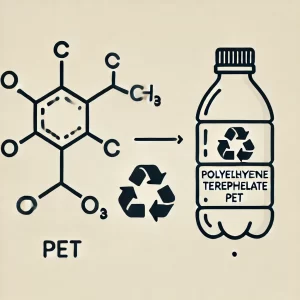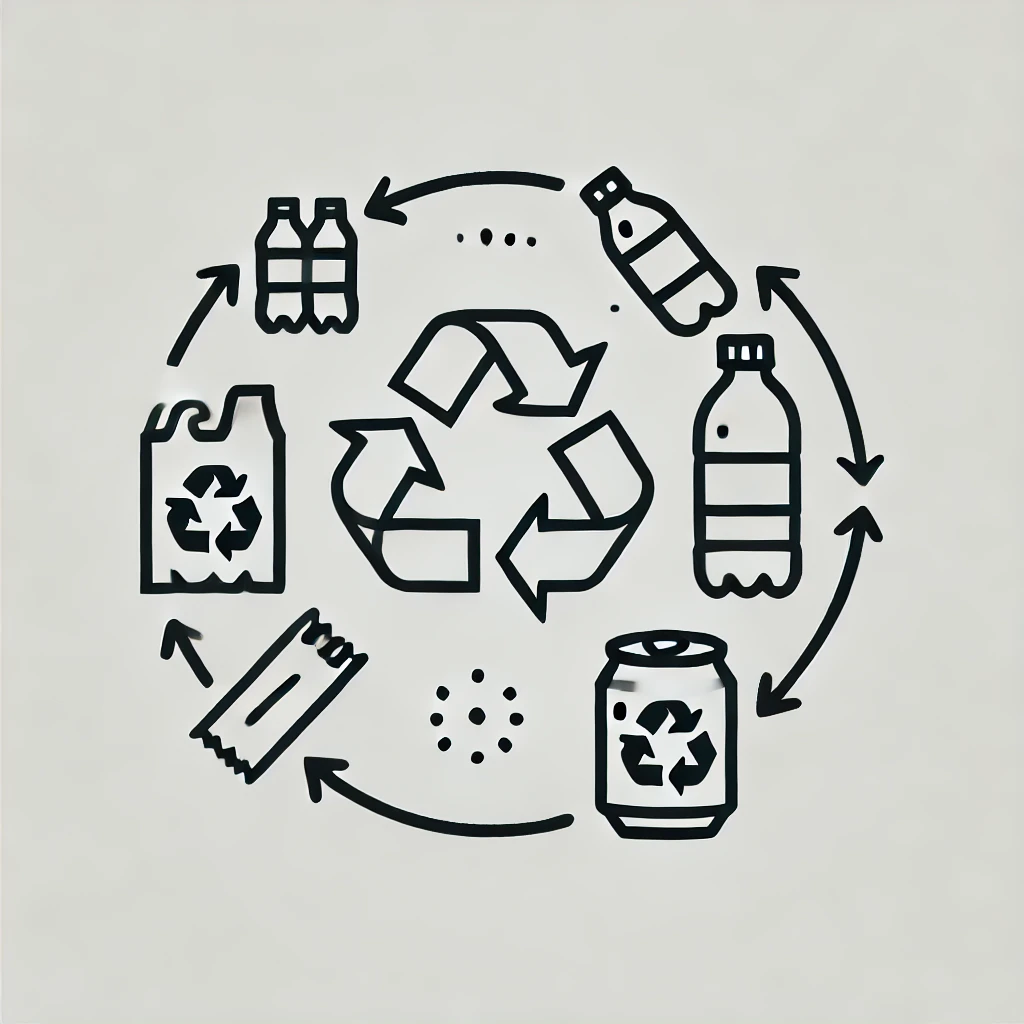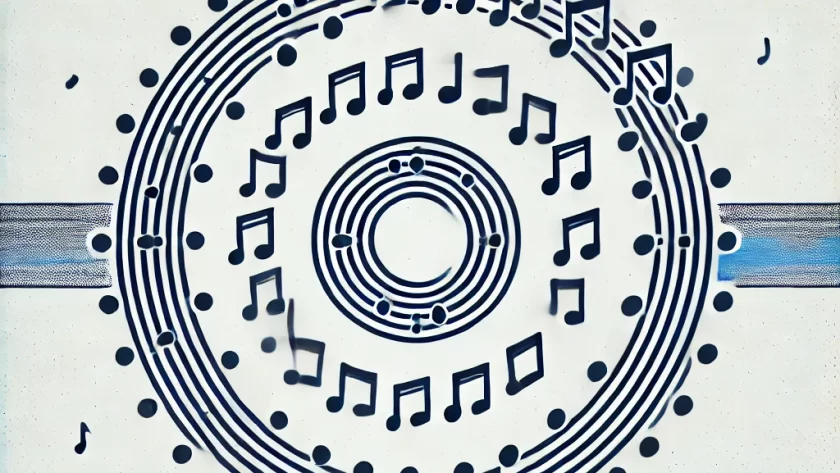ポリリズム [Poririzumu]
Perfume [Pafyūmu]
Words & Music : 中田ヤスタカ [NAKATA Yasutaka]
Perfume originally started as a local idol group from Hiroshima wiki. After a long period of struggling, they switched to a techno-pop style. Since 2003, they have been produced by Yasutaka Nakata, who later launched Kyary Pamyu Pamyu, releasing many hit songs.
“Polyrhythm” was written for a public commercial promoting environmental protection and resource recycling. This commercial helped the song become widely known and it became one of Perfume’s signature songs. The title of the song is derived from the musical technique of polyrhythm and also takes inspiration from “poly” in polyethylene terephthalate (PET), reflecting the recycling campaign theme.
Slightly off-topic from the song, but PET, short for polyethylene terephthalate, is the material used for common plastic bottles. In Japan, these are called “ペットボトル / petto botoru” (=PET bottle) and are distinguished from simple plastic. The recycling rate for PET bottles in Japan is 85% compared to 21% in the US and 42% in Europe (2017).

とても大事な キミの想いは
totemo daijina kimi no omoi wa
無駄にならない 世界は廻る
muda ni naranai sekai wa mawaru
ほんの少しの 僕の気持ちも
honno sukoshi no boku no kimochi mo
巡り巡るよ
meguri meguru yo
- とても [totemo] : very
- 大事な(だいじな) [daijina] : important
- キミ(きみ) [kimi] : you
- 想い・思い(おもい) [omoi] : feeling
- 無駄に(むだに) [muda ni] : waste
- 世界(せかい) [sekai] : world
- 回る・廻る(まわる) [mawaru] : turn
- ほんの [honno] : just
- 少し(すこし) [sukoshi] : a little
- 僕(ぼく) [boku] : I
- 気持ち(きもち) [kimochi] : feeling
- 廻る(めぐる) [meguru] : go around
(translation) “Your very important feelings
Will not be wasted. The world goes around.
Even a little of my feelings
Will circulate and come back around.”
Japanese first and second-person pronouns are very basic in Japanese and particularly important in lyrics, so I’ve explained them many times before.
In these lyrics, “僕 / boku” is used. This translates to “I.” And “君 / kimi” translates to “you.” “Boku” is a first-person pronoun used exclusively by males and is more polite and gentle compared to another male-exclusive pronoun “俺 / ore.” Therefore, it is often used in lyrics. “Kimi” is used by men when addressing women in lyrics and pairs well with “boku.”
Although it’s standard for the lyrics to match the gender of the singer, like with Perfume, this is a bit of an exception. Conversely, sometimes male singers use feminine language in lyrics to match the narrative or dialogue of the song.
Interestingly, in manga and anime, there are female characters who use “boku” as their first-person pronoun, and it seems that this type of female character is highly regarded by some men. Influenced by this culture, some women in real life, although rare, use “boku” as their first-person pronoun. One recent popular idol, “Ano YouTube“, does this, possibly influenced by gender-free thinking.

くり返す このポリリズム
kurikaesu kono poririzumu
あの衝動は まるで恋だね
ano shōdō wa marude koi da ne
くり返す いつかみたいな
kurikaesu itsuka mitaina
あの光景が 甦るの
ano kōkei ga yomigaeru no
くり返す このポリリズム
kurikaesu kono poririzumu
あの反動が うそみたいだね
ano handō ga uso mitai da ne
くり返す このポリループ
kurikaesu kono porirūpu
ああプラスチック みたいな恋だ
aa purasuchikku mitaina koi da
- くり返す(くりかえす) [kurikaesu] : repeat
- あの [ano] : that
- 衝動(しょうどう) [shōdō] : impulse
- まるで [marude] : just like
- 恋(こい) [koi] : love
- いつか [itsuka] : someday
- みたい [mitai] : like
- 光景(こうけい) [kōkei] : scene
- よみがえる [yomigaeru] : revive
- 反動(はんどう) [handō] : reaction
- うそ [uso] : lie
- プラスチック(ぷらすちっく) [ purasuchikku] : plastic
- 恋(こい) [koi] : love
(translation) “Repeating this polyrhythm,
That impulse is just like love.
Repeating, like once before,
That scene is revived.
Repeating this polyrhythm,
That reaction seems like a lie.
Repeating this poly loop,
Ah, it’s a love like plastic.”
“くり返す / kurikaesu” (=repeat), “まわる / mawaru” (=turn), and “めぐる / meguru” (=go around) are similar words that appear frequently. I explained these in a previous article on “Jidai.”
The line about love being like plastic in this song probably doesn’t imply an artificial or tasteless love, which is not a common usage in Japan. In a previous article on “Plastic Love,” that meaning was implied. Here, it likely refers to the image of PET bottle recycling.

またくり返す このポリリズム このポリリズム
mata kurikaesu kono poririzumu kono poririzumu
このポリリズム ポリループ
kono poririzumu porirūpu
- また [mata] : again
In this section, the musical technique of polyrhythm is used. In the previous 4-beat flow, the five Japanese phonetic units of “ポ・リ・リ・ズ・ム / po-ri-ri-zu-mu” are overlaid on a 5-beat pattern and repeated. This combination loop is referred to as a poly loop.
It seems that the record company and management office pressured them to change this part for use on TV and radio, but Yasutaka Nakata persisted and convinced them otherwise. Personally, I think it’s not as complex as African polyrhythms and is quite easy to listen to.
ほんの少しの 僕の気持ちが
honno sukoshi no boku no kimochi ga
キミに伝わる そう信じてる
kimi ni tsutawaru sō shinjiteru
とても大事な キミの想いは
totemo daijina kimi no omoi wa
無駄にならない 世界は廻る
muda ni naranai sekai wa mawaru
ほんの少しの 僕の気持ちも
honno sukoshi no boku no kimochi mo
巡り巡るよ
meguri meguru yo
- ほんの少し(ほんのすこし) [honno sukoshi] : just a little
- 信じてる(しんじてる) [shinjiteru] : believe
(translation) “Just a little of my feelings
Will reach you. I believe so.
Your very important feelings
Will not be wasted. The world goes around.
Even a little of my feelings
Will circulate and come back around.”
It seems to convey a message that even the smallest actions of an individual are not in vain and will lead to good outcomes.
Incidentally, if you plan to travel to Japan, keep in mind that Japan has the most vending machines in the world, and you can find them everywhere to buy drinks, but there are very few trash cans. This is to reduce waste and keep the streets clean.

Thanks for reading! Feel free to comment if you have any feedback or questions.
Follow me on X.



